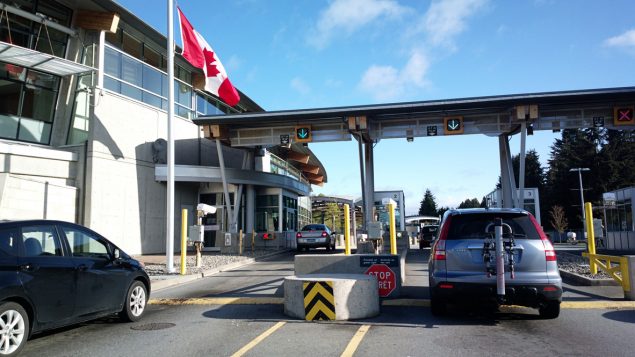As the more easily transmitted variants of COVID-19 emerge in Canada, the government is enhancing quarantine measures for travellers arriving in the country by air and by land. Those who arrive at airports are already required to provide proof of a negative COVID-19 test result from within 72 hours of boarding their flight home. That will now also apply to travellers who arrive by land as well. Essential workers such as truckers and emergency service providers will be exempt, as will be cross border communities.
The only country that borders Canada is the U.S. and that border is 8,891 km long. There is a trade in goods and services between the two countries of almost two billion dollars a day.
As of February 22, 2021, travellers entering by land will have to take a COVID-19 test when they arrive as well as towards the end of their 14-day quarantine. They may isolate at home under certain conditions. To start off with there will be five ports of entry where those tests will be available. They will be in the provinces of British Columbia, Alberta, Ontario, Quebec and New Brunswick. There will be 11 more ports as of March 4. The government says it is working to supply all other ports of entry with test kits so that travellers can meet the requirement.

Travellers arriving in Canada will have to take a COVID-19 test immediately and spend three nights in a hotel paid for by themselves and arranged in advance of leaving Canada. (iStock)
All travellers must submit travel and quarantine plans online
Those arriving by air must take a COVID-19 test before they leave the airport to return to Canada and another toward the end of their 14-day quarantine period. Even before they leave Canada, they will be required to reserve a three-night stay in a Canadian hotel which is required upon their return. The stay will be in a government-approved hotel and paid for by the traveller. Costs estimated at about $2,000 include the room, food, cleaning, infection prevention and control measures, security and transportation. If after the three days they test negative, they may go home to finish their 14-day quarantine. If they test positive they must quarantine in a government designated facility. All air travellers must arrive at either Montreal, Toronto, Calgary or Vancouver. If they test negative upon arrival they will be allowed to take a connecting flight to their final destination.
As of February 22, 2021, all travellers whether arriving by land or air must submit travel and contact information including a suitable quarantine plan. This must be done electronically via the ArriveCan website before they cross the border or before they board a flight. For their 14-day quarantine, travellers cannot stay with at-risk people such as those who work in hospitals, long-term care facilities, those over the age of 65, or anyone who is immunocompromised or otherwise at risk for more severe disease outcomes. In addition, they must avoid contact with anyone in their household who did not travel with them.
‘Now is not the time to travel,’ urges government
The government concluded its announcement by “strongly advising Canadians to cancel or postpone any non-essential travel, including vacation plans, outside Canada. Foreign nationals should likewise postpone or cancel travel plans to Canada. Now is not the time to travel.”







For reasons beyond our control, and for an undetermined period of time, our comment section is now closed. However, our social networks remain open to your contributions.